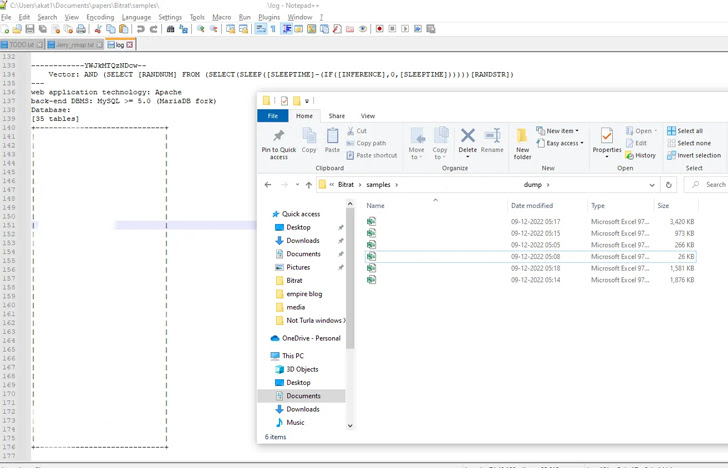A new malware campaign has been observed using sensitive information stolen from a bank as a lure in phishing emails to drop a remote access trojan called BitRAT.
The unknown adversary is believed to have hijacked the IT infrastructure of a Colombian cooperative bank, using the information to craft convincing decoy messages to lure victims into opening suspicious Excel attachments.
The discovery comes from cybersecurity firm Qualys, which found evidence of a database dump comprising 418,777 records that's said to have been obtained by exploiting SQL injection faults.
The leaked details include Cédula numbers (a national identity document issued to Colombian citizens), email addresses, phone numbers, customer names, payment records, salary details, and addresses, among others.
There are no signs that the information has been previously shared on any forums in the darknet or clear web, suggesting that the threat actors themselves got access to customer data to mount the phishing attacks.
The Excel file, which contains the exfiltrated bank data, also embeds within it a macro that's used to download a second-stage DLL payload, which is configured to retrieve and execute BitRAT on the compromised host.
"It uses the WinHTTP library to download BitRAT embedded payloads from GitHub to the %temp% directory," Qualys researcher Akshat Pradhan said.
Created in mid-November 2022, the GitHub repository is used to host obfuscated BitRAT loader samples that are ultimately decoded and launched to complete the infection chains.
BitRAT, an off-the-shelf malware available on sale on underground forums for a mere $20, comes with a wide range of functionalities to steal data, harvest credentials, mine cryptocurrency, and download additional binaries.
"Commercial off the shelf RATs have been evolving their methodology to spread and infect their victims," Pradhan said. "They have also increased the usage of legitimate infrastructures to host their payloads and defenders need to account for it."
- funkyy
-

 1
1





Recommended Comments
There are no comments to display.
Join the conversation
You can post now and register later. If you have an account, sign in now to post with your account.
Note: Your post will require moderator approval before it will be visible.